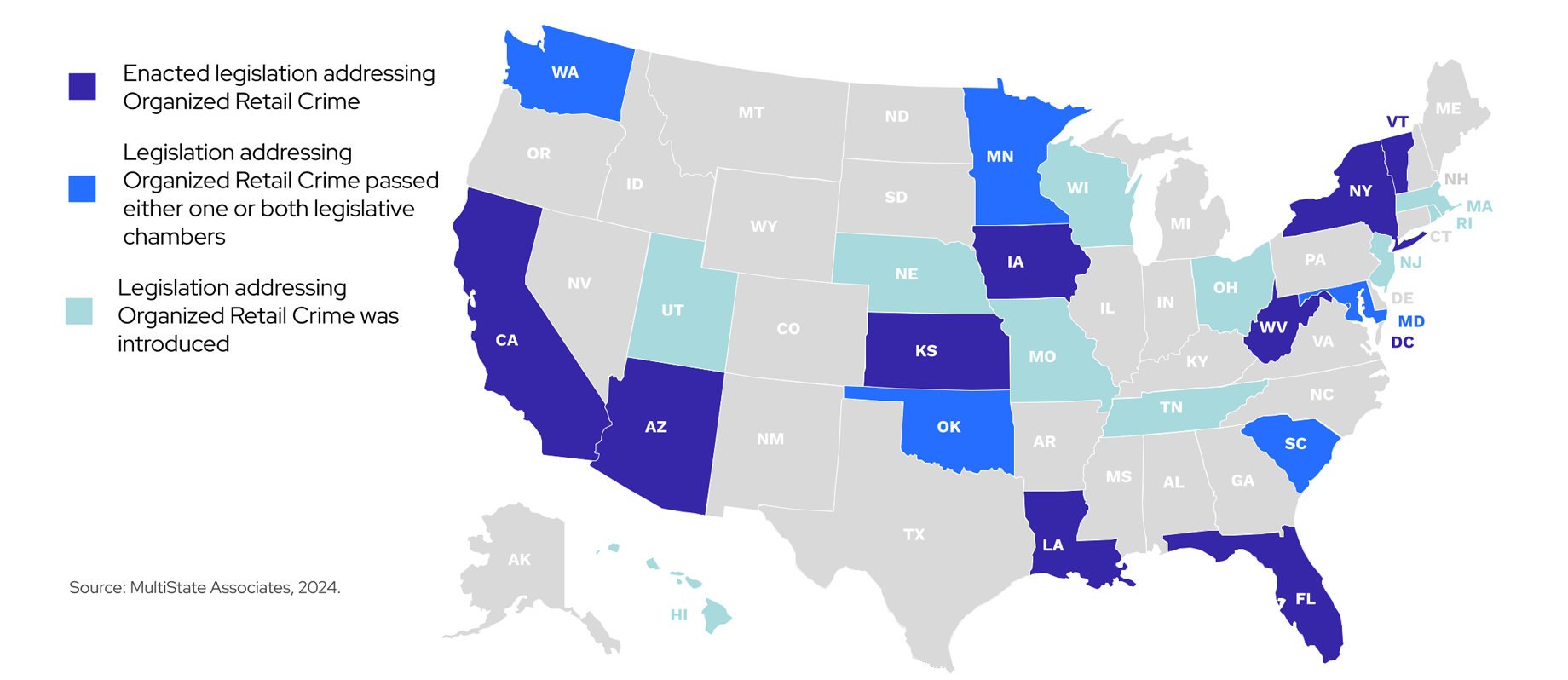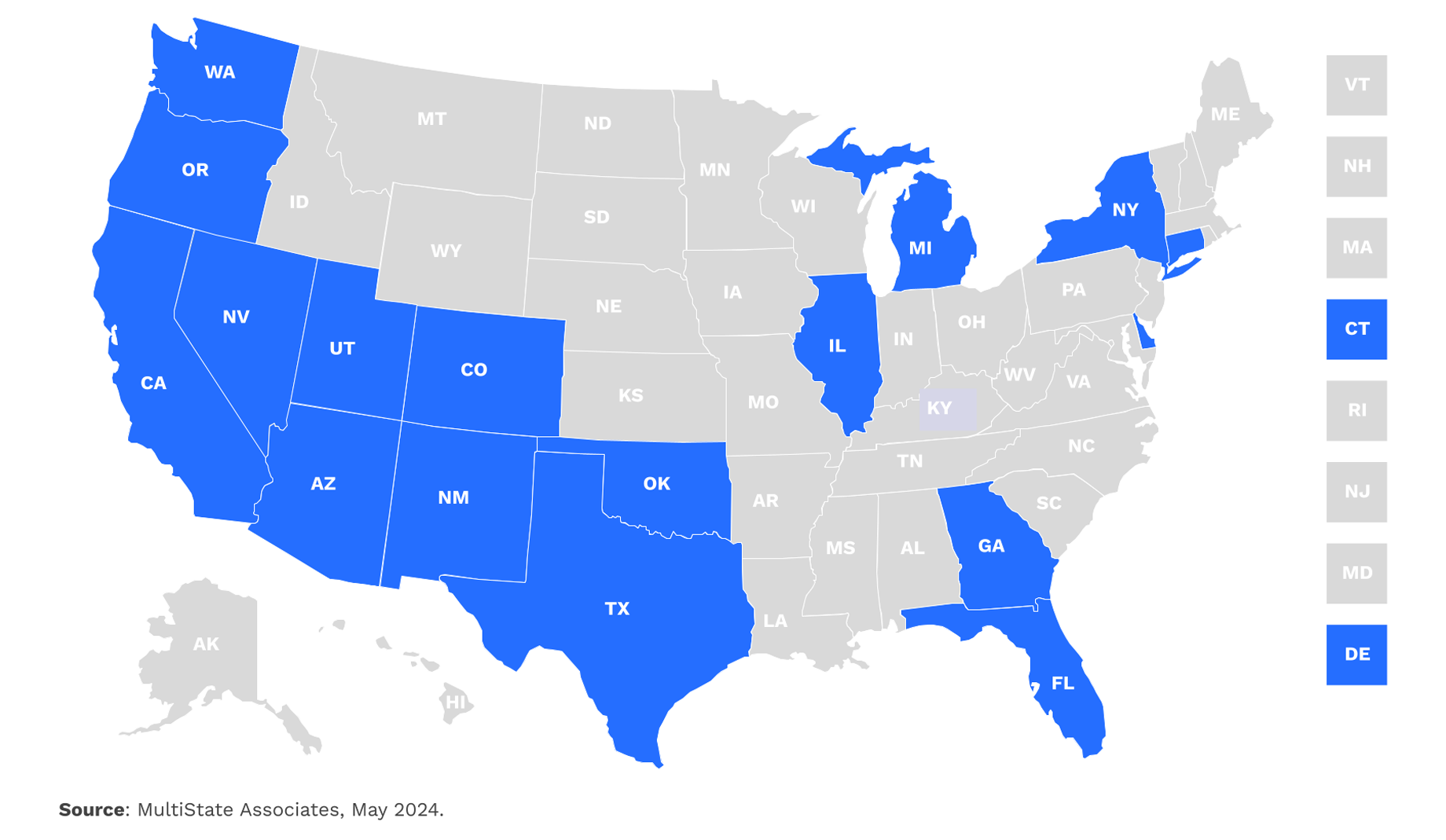The battle to curb organized retail theft was a major priority for state lawmakers and law enforcement this year. Lawmakers in nine states (Arizona, California, Florida, Iowa, Kansas, Louisiana, New York, Vermont and West Virginia) plus D.C., enacted 23 pieces of legislation that targeted different aspects of organized retail crime (ORC). Most of the measures considered by lawmakers addressed one of the following objectives: 1) provide more flexibility for prosecutors to charge offenders with the total value of stolen goods across multiple jurisdictions, 2) increase funding for law enforcement to investigate ORC cases, and 3) enforce tougher punishment for repeat offenders.
2024 ORC Retail Crime Legislation

Theft aggregation proposals have been more aggressive this year, giving law enforcement longer time periods for aggregating multiple thefts across different jurisdictions. Typically, theft aggregation laws have allowed prosecutors to charge thieves with the total value stolen across a 60- or 90-day period. Bills enacted in Florida (FL HB 549), Iowa (IA HF 2594) and Kansas (KS HB 2144) significantly expanded this window to allow law enforcement more time to target sophisticated networks that can get around shorter aggregation periods. In the case of Florida and Kansas, law enforcement now has up to 12 months to aggregate the total value of thefts.
New York lawmakers enacted key ORC measures in the state’s FY25 budget (SB 8305/AB 8805 and AB 8809/SB 8309), including tax credits for store owners to purchase security cameras, increase penalties for thieves who assault retail workers, and allowing prosecutors to aggregate the value of multiple thefts. The budget bill also provided funding to create a statewide ORC Task Force.
To date, 17 states have created ORC Task Forces to coordinate activity among law enforcement, prosecutors, and businesses in stopping multi-jurisdictional retail crime rings. ORC Task Force bills were also introduced in Ohio (OH HB 366) and Hawaii (HI HB 1716 and HI HB 2585) this year.
States with an ORC Task Force

And finally, voters in California approved, by a 7 to 3 margin, a ballot measure aimed at increasing penalties for retail thieves who steal below the $950 felony threshold. The ballot measure (called Proposition 36) allows prosecutors to charge repeat theft offenders with a felony theft count, regardless of the dollar amount stolen. The measure also allows prosecutors and law enforcement to charge thieves for the total value of property stolen across multiple jurisdictions. In September, California Governor Gavin Newsom (D) signed ten bills into law that increase penalties for repeat theft offenders and provide law enforcement with additional tools to pursue retail thieves. Broadly speaking, Prop 36 narrowly focuses on penalties for thieves who are stealing below the $950 threshold whereas the package of ORC bills addresses both enforcement and sentencing for thefts over $950.
For more information contact gpp@icsc.com.